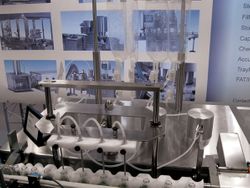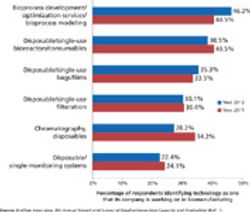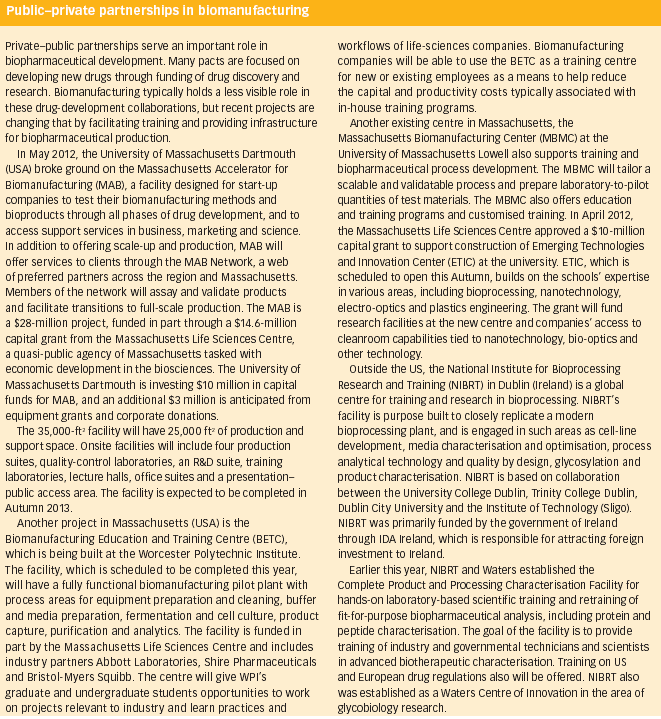News
Pharmaceutical Technology Europe
Pharma Aid for Developing World
Pharma Aid for Developing World
Recently there have been many announcements about the pharmaceutical industry's positive influence in developing countries, and this progress looks set to continue thanks to initiatives being launched by the World Health Organisation (WHO) and the European Commission (EC).
The WHO recently launched a new plan that aims to completely eliminate measles and rubella. Key to the success of the plan will be vaccination. According to the WHO, measles deaths have reduced by 74% between 2000 and 2010 thanks to vaccines. Now, the WHO wants to go a step further by introducing rubella vaccines too. By 2015, the plan intends to cut deaths by 95% compared with 2000 levels, and to completely eliminate measles and rubella in at least five WHO regions by 2020.
The initiative, named Measles & Rubella Initiative, has received strong support from the GAVI Alliance, which obtains vaccines from the pharma industry at subsidized prices for use in vaccination campaigns in developing countries.
Renaud Visage/Digital Vision/GettyImages
Meanwhile, the European Commission has offered a €2-million inducement prize to encourage researchers to overcome one of the main barriers to using vaccines in developing countries: the need to keep them stable at any ambient temperature.
Vaccines used in tropical and developing countries are often rendered ineffective by temperature variations during transport and storage long before they reach their intended patients. Vaccine delivery from manufacturers to recipients can take 18 months and often requires an unbroken cold chain, but such a system can be difficult to implement in developing countries. In a statement, the EC quotes the World Health Organisation's claim that half of all supplied vaccine doses are wasted — mainly by an inadequate cold-chain.
According to the EC, solving the challenge of vaccine stability could go far in aiding the vaccine efforts of developing countries and an inducement prize could be just what's needed given that innovations such as tinned food, transatlantic flights and navigation at sea were all encouraged via competitions and prizes.
Efforts from pharma
Of course, it's all very well for the WHO and the EC to launch these initiatives but support from the pharmaceutical industry is vital. Fortunately, many pharma companies are already on the case.
The Pharmaceutical Research and Manufacturers of America (PhRMA) recently announced that more than 300 vaccines were currently in development in the US. As well therapeutics of interest to the west, such as cancer vaccines, the list also includes a vaccine for protecting infants against meningococcal disease, a leading cause of meningitis and a recombinant vaccine to prevent malaria.
Big Pharma names have also been in the headlines for their efforts in developing countries. At the end of last month, for instance, Christopher A. Viehbacher, CEO of Sanofi, took a trip to Africa to see the work the company is conducting to support the fight against neglected tropical diseases, such as sleeping sickness. According to a press statement, Sanofi and its partners are on track to eliminate this disease by 2020.
Other big-name companies are also pursuing projects in the developing world. For example, in March, the UK's University of Dundee announced that it had received more than £10 million from the Wellcome Trust to work with GlaxoSmithKline on treatments for tropical diseases, including Chagas disease, leishmaniasis and sleeping sickness. The aim is to deliver at least one treatment against one of these diseases in the next five years.
In January, a huge coordinated push to fight neglected tropical diseases was launched by several global health organisations and pharmaceutical companies. No doubt we will be hearing more about pharma and neglected diseases in the future.
News bites
Novartis takes on UK NHS
The UK's National Health System has cut the cost of treating wet age-related macular degeneration (AMD) by prescribing a cheaper drug over a more expensive one. The controversial element is that the cheaper drug isn't licensed for wet AMD, which has prompted anger from Novartis.
Merck job cuts
Merck KGaA has revealed further details about its restructuring programme, including plans to eliminate around 580 jobs. A further 750 positions will be transferred from Switzerland to alternative sites mainly in Germany, the US and China. Among other actions, the company will close its Merck Serono headquarters in Geneva.
UK anticounterfeiting
The UK's Medicines and Healthcare products Regulatory Agency (MHRA) has launched a new anticounterfeiting strategy with the aim of curbing the occurrence of falsified medicines in the county's supply chain. The strategy will focus on prevention, incident management, and investigation of all reports of falsified medicines in the UK.
GSK eyes medicines class
GlaxoSmithKline has partnered with the US's Yale university to design a new class of medicines that could be beneficial in areas such as oncology and infection. The collaboration will use proteolysis targeting chimeric molecules, which have the ability to guide proteins to a cell's cleaning mechanism, where they can then be destroyed.




